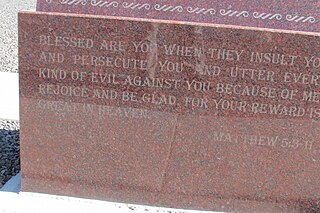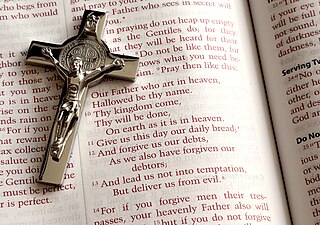Ambrose: When you have done thus much, attained both poverty and meekness, remember that you are a sinner, mourn your sins, as He proceeds, Blessed are they that mourn. And it is suitable that the third blessing should be of those that mourn for sin, for it is the Trinity that forgives sin.
Hilary of Poitiers: Those that mourn, that is, not loss of kindred, affronts, or losses, but who weep for past sins.
Pseudo-Chrysostom: And they who weep for their own sins are blessed, but much more so who weep for others’ sins; so should all teachers do.
Jerome: For the mourning here meant is not for the dead by common course of nature, but for the dead in sins, and vices. Thus Samuel mourned for Saul, thus the Apostle Paul mourned for those who had not performed penance after uncleanness.
Pseudo-Chrysostom: The comfort of mourners is the ceasing of their mourning; they then who mourn their own sins shall be consoled when they have received remittance thereof.
Chrysostom: And though it were enough for such to receive pardon, yet He rests not His mercy only there, but makes them partakers of many comforts both here and hereafter. God's mercies are always greater than our troubles.
Pseudo-Chrysostom: But they also who mourn for others’ sins shall be comforted, inasmuch as they shall own God's providence in that worldly generation, understanding that they who had perished were not of God, out of whose hand none can snatch. For these leaving to mourn, they shall be comforted in their own blessedness.
Augustine: Otherwise; mourning is sorrow for the loss of what is dear; but those that are turned to God lose the things that they held dear in this world; and as they have now no longer any joy in such things as before they had joy in, their sorrow may not be healed till there is formed within them a love of eternal things. They shall then be comforted by the Holy Spirit, who is therefore chiefly called, The Paraclete, that is, ‘Comforter;’ so that for the loss of their temporal joys, they shall gain eternal joys.
Glossa Ordinaria: Or, by mourning, two kinds of sorrow are intended; one for the miseries of this world, one for lack of heavenly things; so Caleb's daughter asked both the upper and the lower springs. This kind of mourning none have but the poor and the meek, who as not loving the world acknowledge themselves miserable, and therefore desire heaven. Suitably, therefore, consolation is promised to them that mourn, that he who has sorrow at this present may have joy hereafter. But the reward of the mourner is greater than that of the poor or the meek, for to rejoice in the kingdom is more than to have it, or to possess it; for many things we possess in sorrow.
Chrysostom: We may remark that this blessing is given not simply, but with great force and emphasis; it is not simply, ‘who have grief,’ but who mourn. And indeed this command is the sum of all philosophy. For if they who mourn for the death of children or kinsfolk, throughout all that season of their sorrow, are touched with no other desires, as of money, or honour, burn not with envy, feel not wrongs, nor are open to any other vicious passion, but are solely given up to their grief; much more ought they, who mourn their own sins in such manner as they ought to mourn for them, to show this higher philosophy.




















